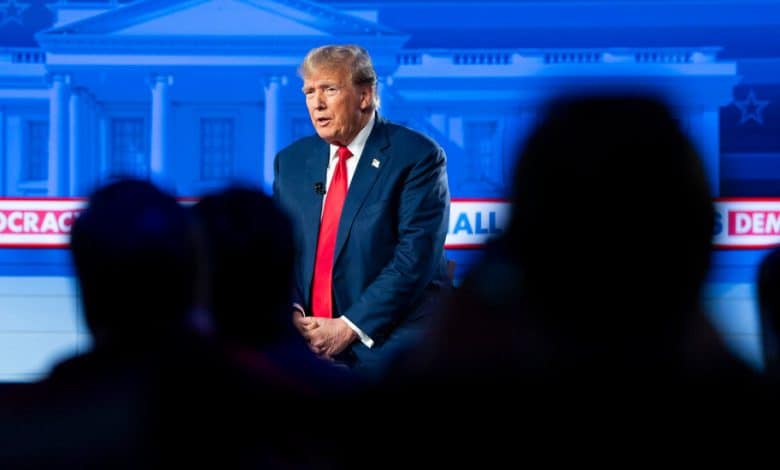Court Papers Offer Glimpse of Trump’s Defense in Classified Documents Case

Lawyers for former President Donald J. Trump on Friday told the federal judge overseeing his prosecution on charges of mishandling classified documents that they intended to ask the government for new information, including assessments of any damage to national security.
The lawyers also told the judge, Aileen M. Cannon, that they planned to ask prosecutors working for the special counsel, Jack Smith, for additional information about how the documents at issue were related to national defense — a requirement of the Espionage Act, one of the statutes that Mr. Trump has been accused of violating. In addition, they said they wanted “tracking information” concerning the classified records.
Mr. Trump’s legal team is poised to make the requests on Tuesday, when it files motions asking for additional discovery evidence. This is a standard part of the pretrial process in which the defense seeks to get as much information about the case out of the government as it can. Discovery motions often indicate how lawyers intend to attack charges before a trial begins or how they plan to defend against them once the case goes in front of a jury.
The papers filed on Friday suggest Mr. Trump may be planning to attack the multiple Espionage Act counts he is facing by, among other things, questioning whether the documents he took from the White House were actually related to national defense. They also suggest he may seek to downplay how damaging their removal from the White House was to the country’s security.
The papers themselves were not discovery motions, but rather a more simple request to use more pages than normal when the motions are due next week. But they did mention the broad categories of information that Mr. Trump’s legal team will seek.
Mr. Smith’s team filed its own set of court papers on Friday, telling Judge Cannon that they intended to call several F.B.I. agents to testify at trial concerning data extracted from cellphones and other devices seized from Mr. Trump’s two co-defendants in the case. They are Walt Nauta, a personal aide who served the former president at Mar-a-Lago, his private club and residence in Florida, and Carlos De Oliveira, Mar-a-Lago’s property manager.
Some of the data, the papers said, will be used to track for the jury the movements of Mr. Nauta and Mr. De Oliveira during key moments of the investigation. Both men have been charged along with Mr. Trump in a conspiracy to obstruct the government’s repeated attempts to retrieve the classified materials.
Mr. Smith also told Judge Cannon about some expert witnesses who will testify about classified material, but that section of the filing was submitted under seal.
Until the two sets of papers were filed on Friday, the classified documents case has been relatively quiet in recent weeks and attention has been focused on the other case Mr. Smith has brought against Mr. Trump — one accusing him of plotting to overturn the 2020 election. Last week, Mr. Trump asked a federal appeals court in Washington to toss out the election interference charges, arguing that he was immune to them because they arose from actions he took while in office.
The documents case has largely been bogged down in arguments involving a host of classified materials discovered or generated during the investigation that Mr. Smith’s prosecutors believe Mr. Trump should not have access to as part of the discovery process. Mr. Trump’s lawyers responded with a highly unusual request to see a motion that prosecutors filed under seal to Judge Cannon explaining their reasons for keeping that material from Mr. Trump.
The case is headed toward an inflection point on March 1, when Judge Cannon has scheduled a hearing in Federal District Court in Fort Pierce, Fla., to discuss when the trial will begin. It is currently set to start on May 20, but late last year Judge Cannon expressed concern that the proceeding might “collide” with the election interference trial, which is set to begin in early March in Washington but could well be delayed.
Finding time for all four of Mr. Trump’s criminal trials — there are two more, in New York City and Atlanta — has been a logistical headache. The proceedings need to be scheduled not only in relation to each other, but also against the backdrop of an increasingly busy presidential campaign in which Mr. Trump is the current front-runner to become the Republican nominee.
Mr. Trump has consistently sought to delay the trials, hoping he can postpone them until after the election is decided. If he can pull that off and win the race, he could seek to have the federal charges against him dropped and could try to complicate the efforts of local prosecutors to bring him to trial while he is in office.